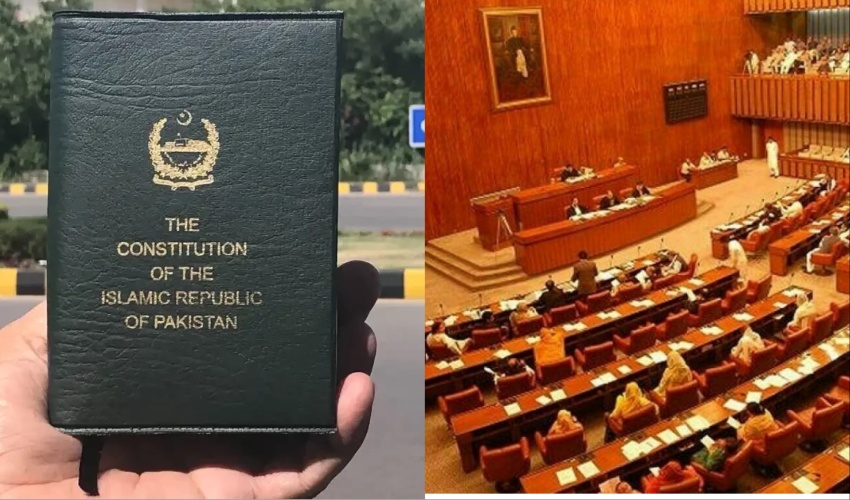The long-awaited 26th Constitutional Amendment Bill 2024 was introduced in the Senate by Federal Law Minister Azam Nazir Tarar on Sunday. This bill proposes significant changes aimed at improving governance and legal frameworks in Pakistan.
Key Features of the Bill:
- Right to a Healthy Environment:
- A new Article 9A is added, granting every citizen the right to a clean, healthy, and sustainable environment.
- Elimination of Interest:
- An amendment to Article 38(f) mandates the complete elimination of riba (interest) by January 1, 2028.
- Judicial Independence and Protection:
- Amendment to Article 48(4) states that advice given to the President by the Cabinet or Prime Minister cannot be challenged in any court or tribunal.
- Article 81 includes provisions for funding judicial bodies like the Judicial Commission of Pakistan and the Supreme Judicial Council.
- Judicial Performance Evaluation:
- Article 175A is revised to establish a performance evaluation system for High Court judges, ensuring accountability and addressing inefficiencies.
- Supreme Court Appointment Criteria:
- Revised Article 177 specifies that candidates must have served as High Court judges for at least five years or practiced for 15 years in the High Court and Supreme Court to qualify for the Supreme Court.
- Judicial Appointment Process:
- Article 175A is further modified to change the composition of the Judicial Commission responsible for appointing Supreme Court judges. A Special Parliamentary Committee will select the Chief Justice from among the three most senior judges. This committee will include representatives from both the National Assembly and Senate, ensuring proportional representation based on parliamentary strength, with appointments finalized by a two-thirds majority vote.
- Election Organization:
- Amendment to Article 81 allocates funds for organizing and conducting elections for the National Assembly, Senate, Provincial Assemblies, and local governments.
- Judicial Accountability:
- Provisions for annual performance evaluations of High Court judges by the Judicial Commission have been added. Unsatisfactory performance will lead to opportunities for improvement; if performance does not improve, the matter will be referred to the Supreme Judicial Council.
- Tenure of Chief Justice:
- Amendment to Article 179 limits the Chief Justice’s tenure to three years, irrespective of age, with mandatory retirement after completing the term.
- Supreme Court Appointment Criteria:
- Changes to Article 177 redefine the qualifications for Supreme Court appointments, requiring candidates to have served as High Court judges for at least five years or to have practiced as advocates for at least 15 years.
These changes aim to enhance legal governance, judicial accountability, and environmental rights in Pakistan.


